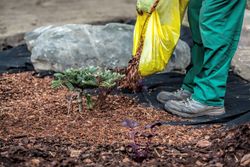3 Tips to Prevent Winter Plumbing Issues

As you prepare your home for winter temperatures, you must pay attention to your residential plumbing. The cold can cause several problems, which is why winterizing should be a priority. Simple steps can be taken now, so use this guide to keep your system efficient and effective.
How to Stop Cold-Weather Plumbing Problems
1. Insulate
Proper insulation protects your pipes—especially those inside exterior walls. These will absorb the brunt of the cold. You can apply insulation sleeves that slip over the pipe or add spray-foam insulation to these areas. The latter provides the most coverage for your residential plumbing and may better insulate your home, leading to reduced energy costs. If you’re overdue for an inspection, consider having a plumber help with the job. They can check for leaks or weak pipes, as well.
2. Keep Faucets Dripping
You need to keep water moving to prevent freezing. When the temperature drops, standing water will freeze and expand and damage pipes. Keep your faucets on a drip to ensure water moves along. Don’t forget to do this with pool pumps and lawn irrigation systems.
3. Protect Your Septic Tank
 Spread mulch over your septic tank or sewer line during winter. Mulch acts as a blanket and keeps the cold air from penetrating the soil. It’s wise to add mulch around plant beds as well to keep roots healthy. If you aren’t sure where your septic tank is, call a plumber to help you locate it.
Spread mulch over your septic tank or sewer line during winter. Mulch acts as a blanket and keeps the cold air from penetrating the soil. It’s wise to add mulch around plant beds as well to keep roots healthy. If you aren’t sure where your septic tank is, call a plumber to help you locate it.
Scheduling a residential plumbing inspection before winter is the best way to keep your system healthy. The team at GNG Plumbing and The Hardware Store is backed by over 30 years of experience and proudly serves residents of Orange Beach and Fort Morgan, AL. They carry all the hardware products for general maintenance and remodeling projects. Their plumbing services team can also handle repairs and installations, which you can learn more about online. Call (251) 974-5630 to schedule an inspection, and connect on Facebook for more plumbing tips.
About the Business
Have a question? Ask the experts!
Send your question

